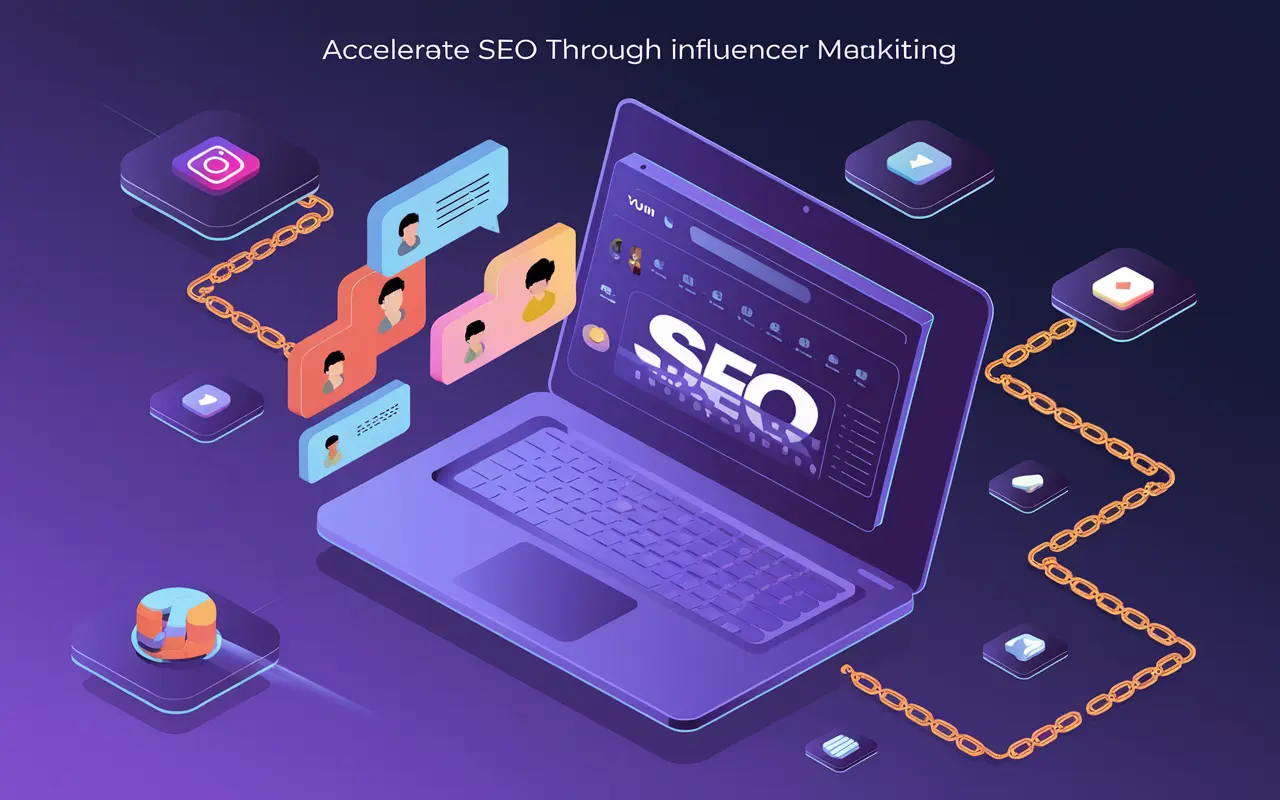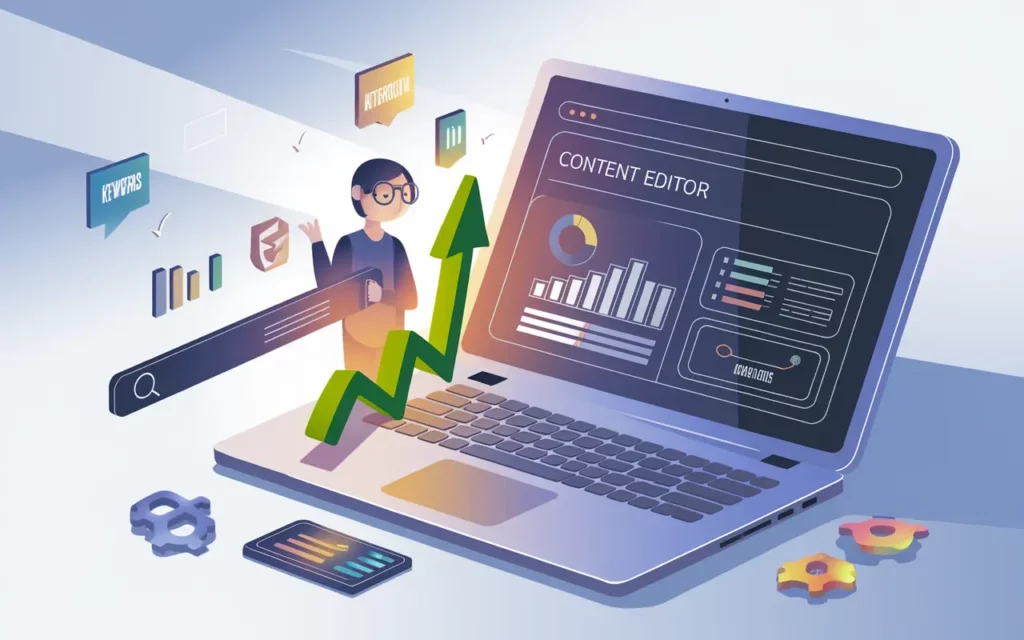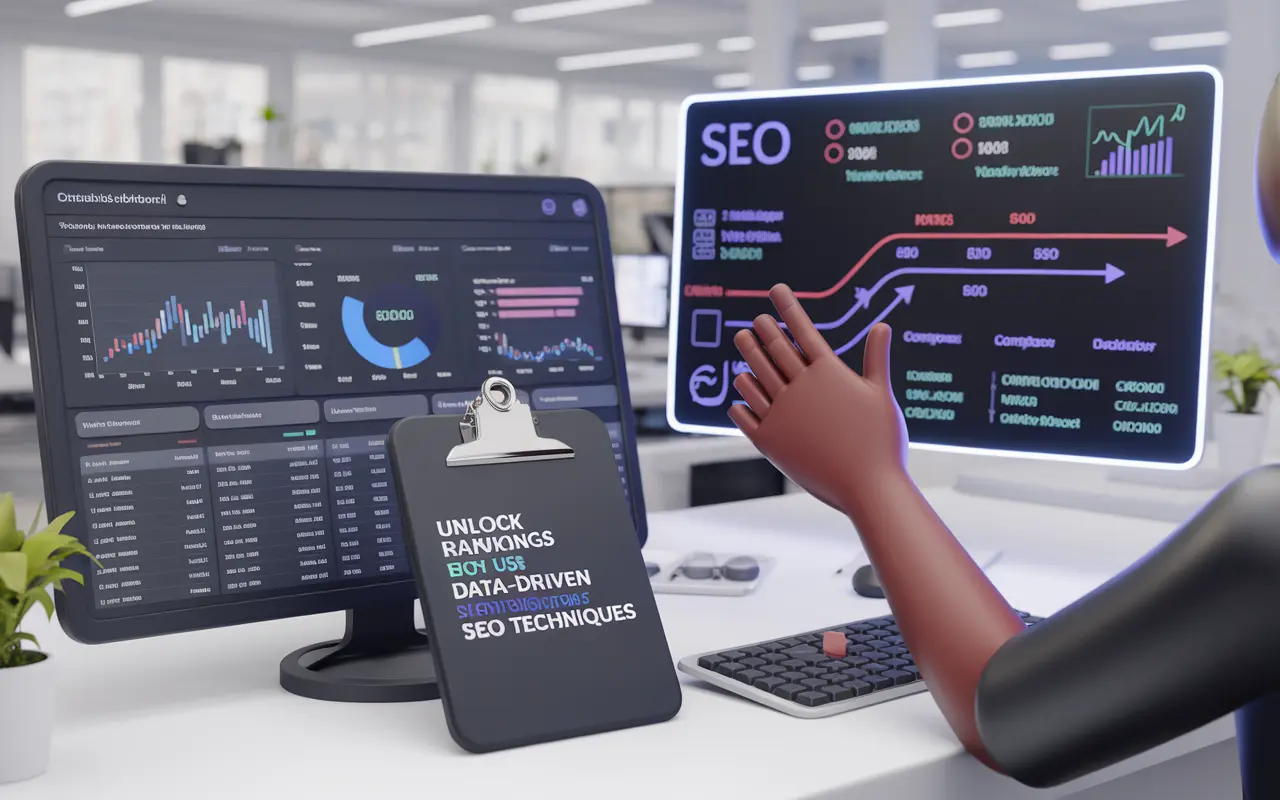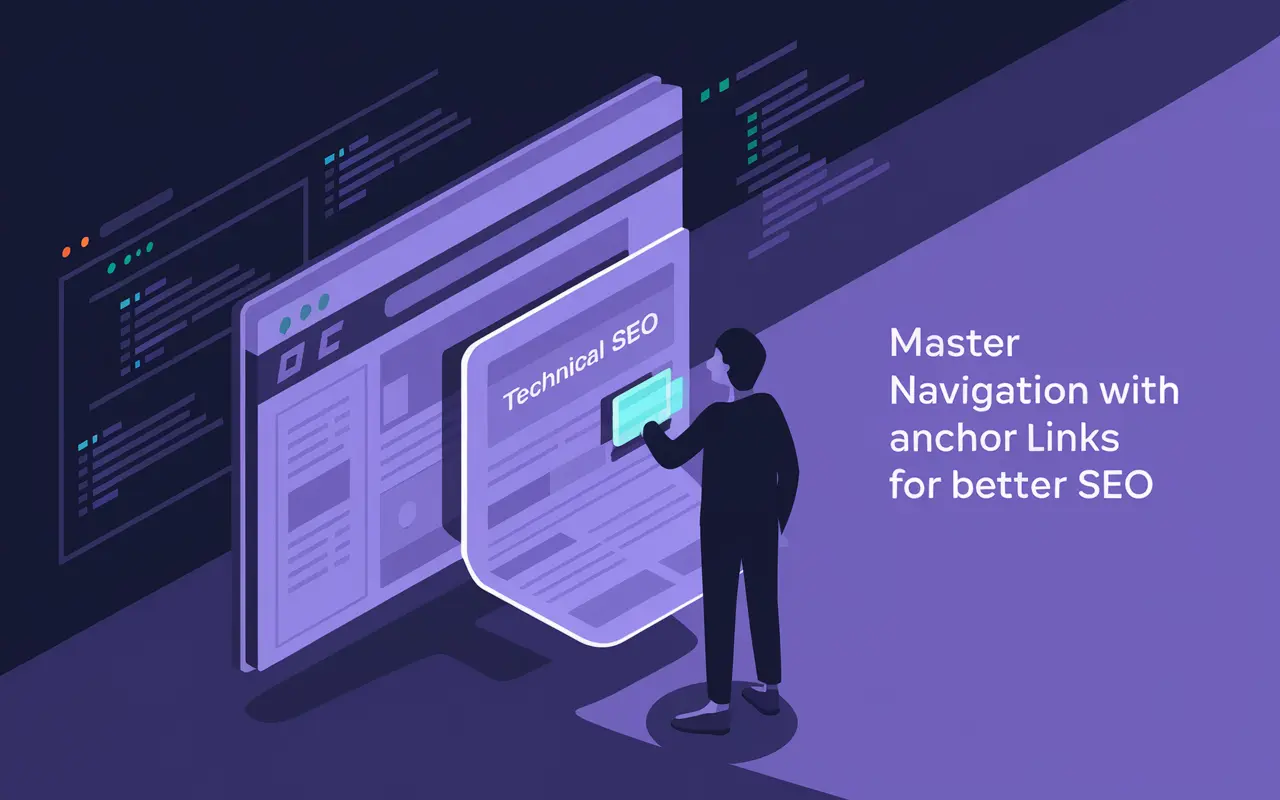Understanding Influencer Marketing in the Context of SEO
Influencer Marketing refers to the strategic collaboration between brands and individuals who have significant authority and a loyal following in a specific niche. These influencers help amplify your content, foster authenticity, and reach new audiences by promoting your brand through their platforms—typically social media, blogs, or other digital channels.
In the context of SEO (Search Engine Optimization), influencer marketing plays a powerful off-page role. It helps generate high-quality backlinks, boost content visibility, increase traffic, and build domain authority—all vital factors in Google’s ranking algorithms.
By establishing trust and leveraging the influencer’s reach, businesses can indirectly optimize their websites for better performance on search engines while also improving brand awareness and engagement.
Key Takeaway
Influencer Marketing is a high-impact off-page SEO strategy that enhances brand authority, earns valuable backlinks, and improves search visibility through strategic collaborations with trusted content creators.
Why Influencer Marketing Matters for SEO Growth
Influencer marketing’s alignment with SEO provides a crucial boost to several ranking signals. Here’s why it’s essential:
1. Earns High-Authority Backlinks
When influencers mention your brand and link to your site on their blogs, YouTube channels, or other platforms, those backlinks signal trust and relevance to search engines. These organic backlinks often come from domains with high authority, which plays a key role in Google’s ranking rankings.
2. Increases Traffic From Qualified Sources
Unlike paid ads, influencer referrals often come from trusted sources. People following an influencer are more likely to click through links, visit your site, and engage with your content, reducing bounce rates and positively impacting SEO metrics.
3. Amplifies Content Distribution
Influencers have established audiences. Collaborating with them during content launches or campaigns can significantly amplify your content’s reach and longevity. This organic exposure can lead to secondary backlinks from other publishers who discover your content via influencers.
4. Improves Brand Mentions & Search Demand
Brand mentions—even without links—can indirectly aid SEO by increasing brand awareness and establishing digital relevance, a factor Google considers when understanding brand reputation.
Best Practices for Effective Influencer Marketing in SEO
- Identify Industry-Relevant Influencers: Use tools like BuzzSumo or Upfluence to find influencers with high engagement in your niche.
- Prioritize Engagement Over Follower Count: An influencer with moderate followers but strong engagement often drives better results than someone with millions of disengaged fans.
- Create Collaborative Content: Co-create blog posts, interviews, videos, or social content that add value to both your brand and the influencer’s audience. This increases the likelihood of backlinks and shares.
- Focus on Earned Media: Instead of simply paying for promotions, build relationships with influencers who genuinely like your product or service for authentic, long-term collaborations.
- Track Metrics that Matter: Set KPIs such as backlinks acquired, domain authority changes, traffic referred, social shares, and actual conversions to measure campaign success.
How Influencer Marketing Strategically Aligns with SEO
Influencer marketing fits seamlessly into an off-page SEO framework, complementing efforts like content marketing and link building.
Backlink Generation Through Content Partnerships
Influencers with authoritative blogs or platforms often link back to products or services they endorse. These editorial-style backlinks are extremely valuable in Google’s eyes.
Social Signals Boost Search Visibility
Although not a direct ranking factor, social engagement helps generate buzz around your content. The likes, shares, and comments can increase visibility, which leads to backlink opportunities.
Improved Topical Relevance
By aligning your brand with niche influencers, you create semantically relevant content that improves your site’s contextual relevance for specific keyword clusters.
Real-World Case Study: How Influencer Marketing Boosted SEO Success
The Challenge: Low Domain Authority and Package Visibility
An online travel startup struggled with poor visibility for its curated travel experiences. Despite quality content, the site had low domain authority and barely any backlinks.
The Strategy: Collaborating with Niche Travel Influencers
The brand partnered with 10 travel influencers who had blogs and Instagram followings. Influencers wrote destination reviews, linking back to the startup’s landing pages, while also posting highlight reels with swipe-up links.
The Results: 3x Traffic and 25 Quality Backlinks
Within 60 days, the startup earned over 25 high-quality backlinks from authority blogs, saw a 300% increase in organic website traffic, and ranked in the top 5 for 6 long-tail destination keywords.
Influencer Marketing Metrics and Impact Table
| Metric | Before Campaign | After Campaign | Growth |
|---|---|---|---|
| Domain Authority | 15 | 27 | +80% |
| Monthly Organic Traffic | 1,200 | 4,000 | +233% |
| Backlinks | 10 | 35 | +250% |
| Keyword Rankings (Top 10) | 3 | 18 | +500% |
Common Influencer Marketing Mistakes to Avoid
- Choosing Irrelevant Influencers: A glamorous influencer outside your niche may deliver followers but little SEO value.
- Overlooking NoFollow Links: Ensure content collaborations encourage DoFollow links to pass SEO juice.
- Lack of Transparency: Not clearly outlining goals and deliverables can result in unfocused content and lost link opportunities.
- Measuring Vanity Metrics: Likes and impressions are valuable, but for SEO, focus on conversions, backlinks, and DA growth.
- One-Off Campaigns: SEO prefers consistent efforts. Build long-term relationships with trusted influencers.
Related Terms to Explore
Related terms:
- Off-Page SEO: Encompasses all SEO activities outside of your website, including influencer marketing, backlinks, and content promotion.
- Link Building: The process of acquiring hyperlinks from other websites to yours to boost authority and search rankings.
- Content Marketing: Creating valuable content to attract and retain audiences, often supported by influencer distribution.
FAQs About Influencer Marketing
Influencer marketing boosts SEO by generating high-authority backlinks, increasing referral traffic, and amplifying your content across multiple platforms.
Yes, influencer marketing is classified as off-page SEO because it involves external content promotion, backlink creation, and brand mentions.
Absolutely. Collaborating with influencers—especially those with authority blogs—can provide natural and relevant backlinks to your website.
Blogs, YouTube, LinkedIn, and Twitter are ideal for influencer-driven SEO as they allow for both content and direct links to your site.
Conclusion: Why Influencer Marketing Should Be in Every SEO Strategy
Influencer Marketing is no longer just a buzzword in the digital marketing arena—it’s a proven SEO accelerator. By strategically partnering with influencers in your niche, your brand earns trust, backlinks, social traction, and increased visibility. These elements collectively contribute to improved search engine rankings, wider audience reach, and better business results. For a competitive edge in search rankings, brands must incorporate influencer marketing into their comprehensive SEO strategies.






